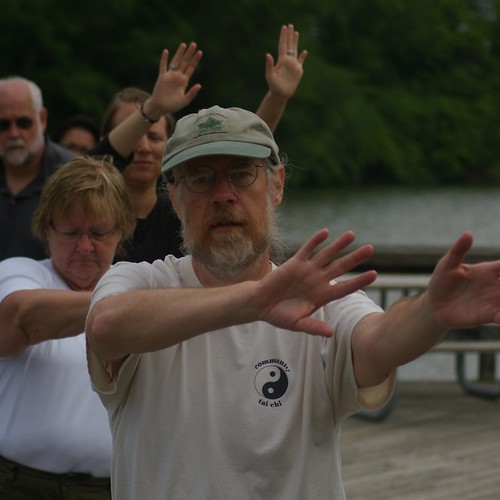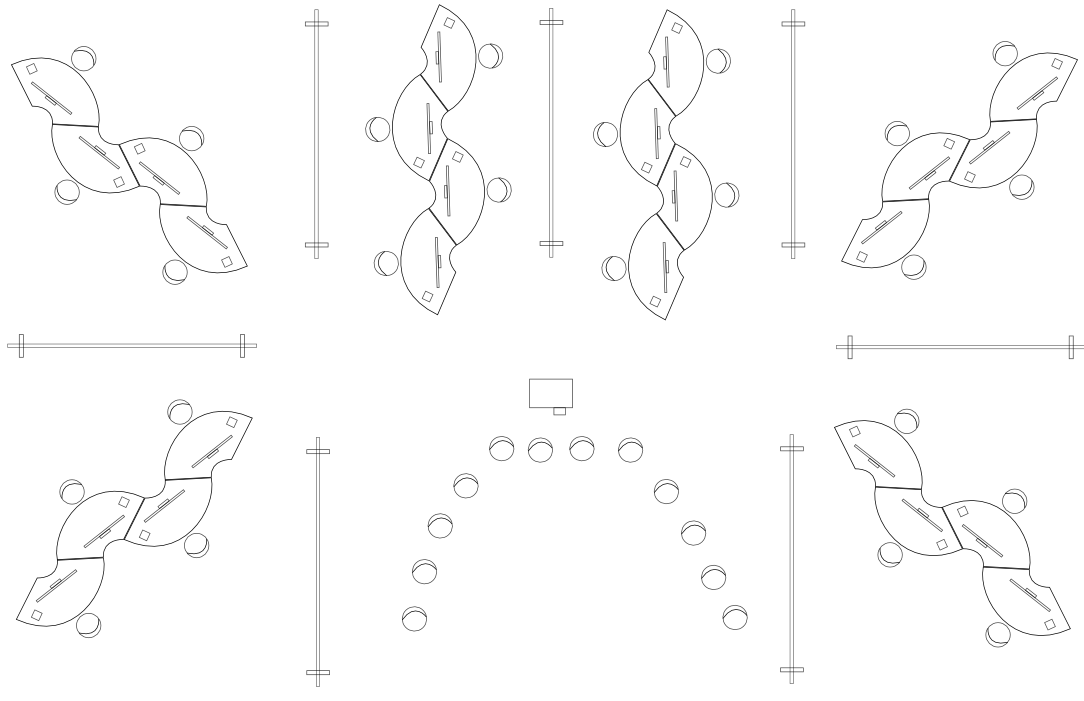Breakfast with Stan and Ellen
When I had been involved in the Faculty Senate leadership previously, we had set up a structure to periodically meet with our state legislators, Representative Ellen Story and Senator Stan Rosenberg. Having gotten myself involved with the leadership again, the committee met this morning over breakfast to discuss state politics and higher education as they affect UMass.
We started out talking about the state budget. Revenues are pretty good and running ahead of expectations. The House included sufficient funding for the 50/50 plan (that the state commit, over two years, to return to paying 50% of the cost of the university, for which, in turn, the University has committed to freezing tuition and fees for two years.) The Senate, unfortunately, has only agreed to providing half of the increase necessary to reach the first year's point toward 50/50. In the absence of assurance that the necessary funds will be provided, the Board of Trustees has approved a modest fee increase in the event that the legislature doesn't come through. Apparently, there is concern that, at the system level, the University is not being sufficiently transparent about how much money is actually available and we see a game of brinkmanship between the legislature and the system over how much is really needed to freeze fees. Sigh…
I used the current controversy over The Retreat (a controversal student housing development slated for Cushman Village) to ask about state/private partnerships. A number of people claim that such partnerships are impossible, hence the need to build on property distant from the University. Stan indicated that there have been some projects at other UMass campuses that were problematic and that he needed to research them to understand better why they had been problems but that, in principle, he didn't see any reason why we couldn't have such partnerships here and that he and Ellen stood ready to help shepherd through projects proposed here. But that the Town and the University had just agreed to conduct joint strategic planning and that this would be the place where such ideas might most fruitfully emerge. Ralph Whitehead generously pointed out that I had been an early proponent of such planning. I'm really pleased to see it happening.
We spoke about the general financial picture generally for higher education. Stan and Ellen indicated that there simply hadn't been a lot of interest in higher education generally in the legislature, but that due to PHENOM and others, there had been some increased interest. I expressed my strong concerns that higher education increasingly faces an existential threat from on-line education (MOOCs) and, since we've been starved of funds, we spend much less per student than we used to and yet students are paying more, which makes it increasingly hard to offer a good value proposition. Randy spoke bluntly at several points that they should never lose sight of the fact that when you speak about "student fees" you're really talking about "student debt". Dick Bogartz presented the perspective that undermining public higher education fit nicely into the neoliberal agenda of turning every activity into an opportunity for the wealthy to extract rents from the system.
We digressed for a few minutes to talk about Intro Biology as a case study of what's happening. We have invested a lot of energy into making the UMass Amherst Intro Biology course a model of effective, modern pedagogy. We built team-based learning classrooms for the labs 15 years ago and redesigned the lecture part of the class to use personal-response systems and small-group "model-based reasoning" to solve problems. It is a national model for pedagogy and Randy (and I and others) have been frequently invited to speak all around the country. I personally was invited to Johns Hopkins, James Madison University, North Caroline State University and Randy has been all over.
At the same time, the course has grown dramatically as students flock to the life sciences -- we've almost doubled in size over 5 years. At the same time, we've had no-where near the investment in resources to manage the influx of students: We've hired a couple of lecturers and built one new laboratory classroom.
In response, we decided last year to switch from offering two semesters of lab to a single semester. Our goal is to dramatically increase the quality of the laboratory experience. We would like to have students work with molecular and cellular biology, which we just can't do with the resources available given the scale of the course.
At the same time, the Chancellor keeps asking why we don't just replace the course with a MOOC. I've tried to explain to him several times that we're doing great work and the idea that we would just give up and throw in the towel is extraordinarily offensive. We want to create -- we have created -- a transformative experience for students. We don't want to have students just watch videos online alone and take content-based tests.
It's a challenge. In the end, I think we did a good job of giving Stan and Ellen ammunition for making the case for the state to build and maintain great public universities.
- Read more about Breakfast with Stan and Ellen
- Log in to post comments



